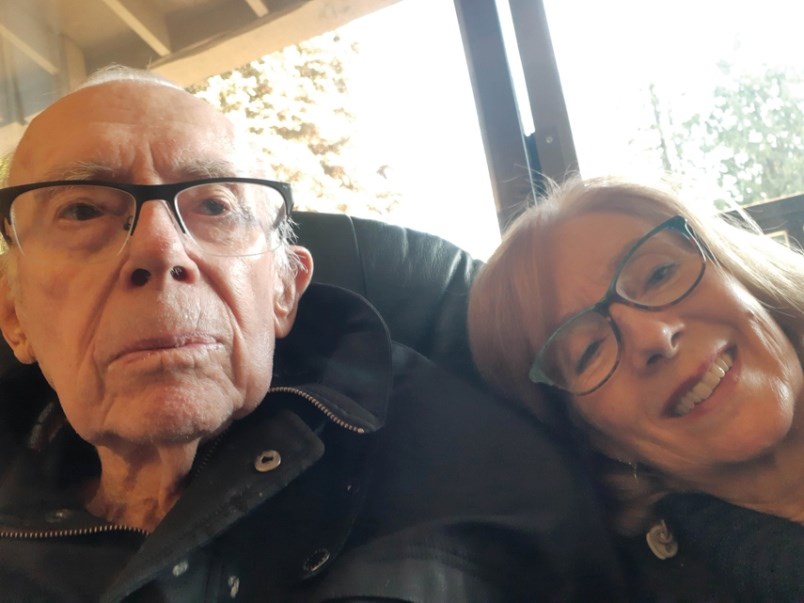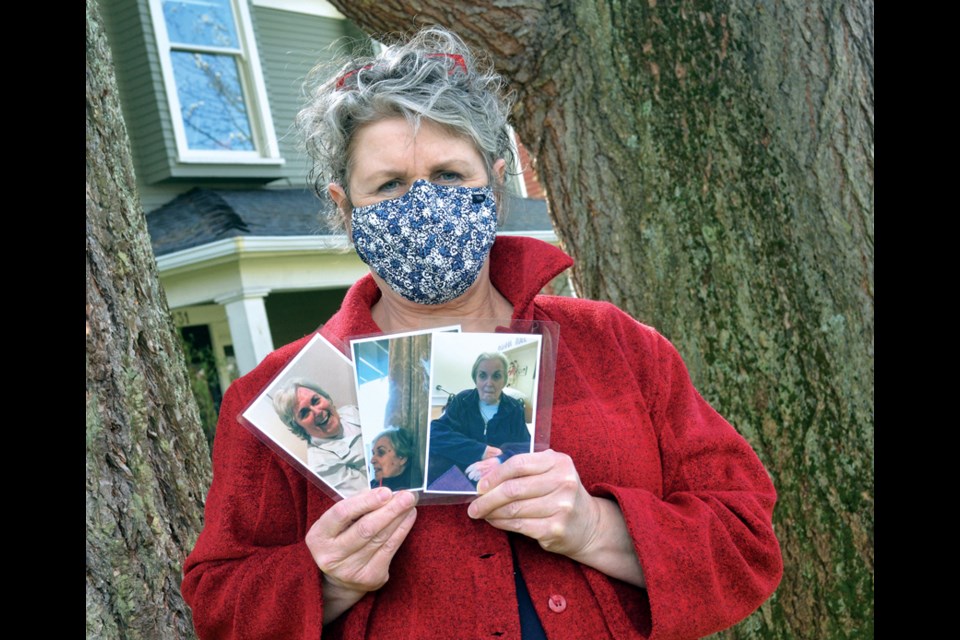Up until Sunday, it had been a long 13 months since Jennifer Knibbs had been allowed to kiss her elderly mother or give her a hug of reassurance.
Knibbs’ 88-year-old mother is among the residents of Lynn Valley Care Centre who contracted COVID-19 during the first outbreak in March 2020.
Their mother recovered, but lockdown restrictions in the aftermath of the outbreak have since kept families from visiting, except behind a Plexiglas barrier in the lobby.
This week, those restrictions are in the process of being loosened, under changes announced recently by Dr. Bonnie Henry, the province’s medical health officer, which will allow family members to visit residents in their rooms. Visits will be time limited and will have to be scheduled in advance.
But the way the new rules are put in place is being left largely up to care home operators, say families, which in some cases have been slow to make any changes.
Desperate to 'give her a hug'
“I’m desperate to get that first visit in,” said Knibbs, just before she received special permission to visit with her mom in her room on Sunday.
But Knibbs said that visit only happened after repeated requests to the care home. Knibbs said she also wasn't allowed to bring her daughter with her, despite regulations allowing two adults and one child from the same household to visit.
"I am so, so tired of fighting just to see my mom," she said.
For many families with parents in long-term care, the past year has been a long one.
Prior to the lockdown, Knibbs and her sister visited their mom frequently, playing cards with her to keep her mom’s mind active. When visits opened in the lobby, they were less than satisfactory, said Knibbs, describing the visits as taking place next to the reception desk while staff and delivery personnel trouped by.
Her mom went a year without a haircut, she said, and learned to “virtual hug ... which is so sad.”
Knibbs admits to becoming impatient after residents, staff and visitors to Lower Mainland care homes were vaccinated two months ago.
“Why weren’t the restrictions lifted at that point?” she said.
 Graham Drew and his daughter Debra Drew. Drew appealed to long-term care authorities at Vancouver Coastal Health to take her father on outings.
Graham Drew and his daughter Debra Drew. Drew appealed to long-term care authorities at Vancouver Coastal Health to take her father on outings.Appeal results in outings
For Debbie Drew, whose 97-year-old father Graham Drew lives with dementia at the same care home, the past year “has been very hard,” she said. Being able to see her dad in private is hugely important, she said, as it also allows family members to see their loved one’s physical and mental condition firsthand. Not satisfied with visits behind Plexiglas, Drew recently appealed to Vancouver Coastal Health in order to take her father out of the care home on short visits – for a picnic on the beach or to revisit scenes of his younger days that jog his long-term memories. Those kinds of outings are to be allowed under the new rules, without residents having to quarantine afterwards.
But Drew says it was a long fight with bureaucracy to get to that place.
Essential visitor status denied
For Kathie Boyd, whose mom with dementia also survived the COVID-19 outbreak at Lynn Valley Care Centre, the fight in the ensuing aftermath for regular visits with her mom has been wearing and consuming. At one point, when her mom’s condition worsened, Boyd was allowed in to see her. Later, she was told she would have to go back to lobby-only visits.
“It was the most heart-wrenching experience,” says Boyd. “She was on one side of the lobby and I was eight feet away on the other side. She kept pointing to come over. She didn’t understand.”
Boyd – like many other families – applied to be an “essential visitor” for her mother but was turned down through several appeals. Eventually she was recently allowed back in to visit her mother in her room but was told she had to leave the door open and was not allowed to touch her.
Care homes given too much power to interpret rules, say families
Boyd said while she should be able to visit her mother more easily with the changes announced, she remains angry that the interpretation of the rules and how they are implemented are left to individual care homes, without any meaningful oversight from government.
“I’m mad there’s no oversight. I’m mad [care homes] are calling the shots. Bonnie Henry says they’re following the same rules throughout the province. And they’re not.”
Boyd said a year is a long time in the life of an elderly care home resident like her mom, whose health has declined in that time. “They’ve all been prisoners there,” she said.
“My mom was always there for me when I needed her, when I was going through lousy stuff. It’s been really hard to not be able to be there for her.”
In February, B.C. Ombudsperson Jay Chalke called on the province to amend its long-term care visits policy to address outstanding fairness concerns, and to ensure the policy is implemented consistently across all health authorities.
"As a result of complaints to my office that we investigated, I continue to have concerns about the associated ministry policy and how it is being implemented," he wrote. Chalke pointed to inconsistent decision-making on visits, an inadequate appeals process and lack of transparency about visit policy as problems that needed addressing.
This week, Terry Lake, CEO of the B.C. Care Providers Association, issued a statement about the relaxation of visiting rules on behalf of care home operators."We have heard countless stories over the past 12 months of how difficult the experience of isolation and physical separation has been for residents, and the emotional toll this has had for sons, daughters, spouses, grandchildren and other companions," Lake wrote.
"We kindly request that those who are looking forward to seeing their loved one in care remain patient as our operators prepare to reopen to visitors."





